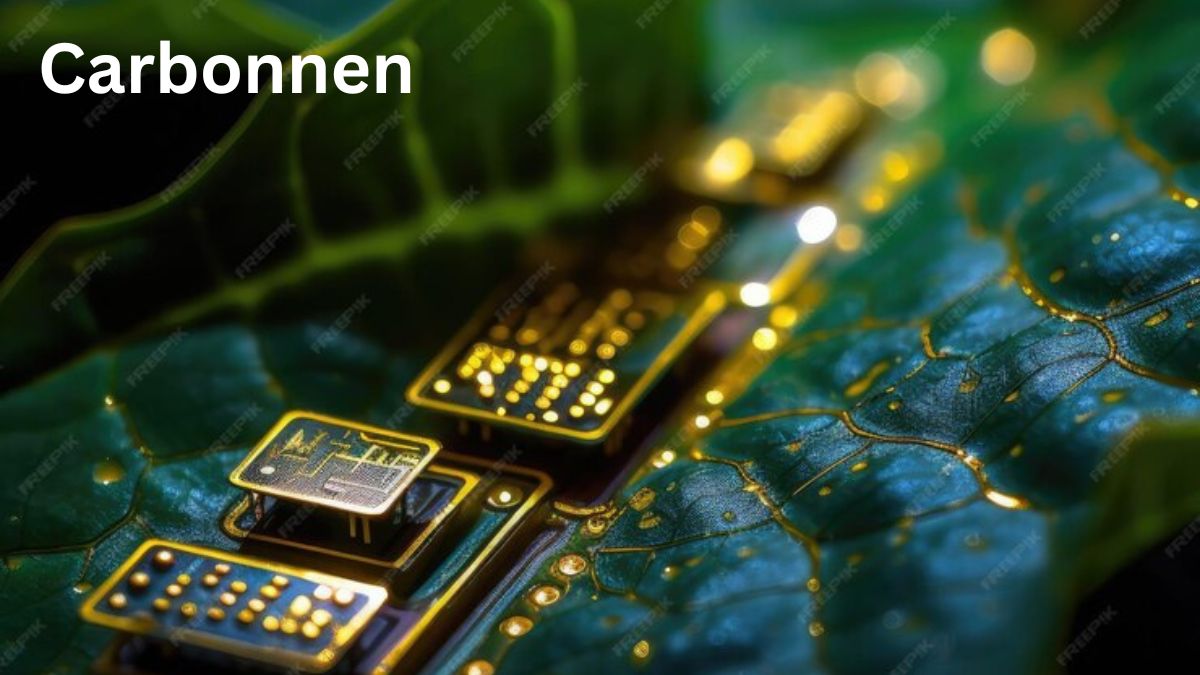In an era where environmental sustainability is paramount, innovative solutions are crucial for mitigating climate change and ensuring a greener future. One such solution is Carbonnen, a groundbreaking technology that promises to revolutionize how we approach energy consumption and resource management.
Understanding Carbonnen
Carbon’nen, a relatively new term in the green technology lexicon, refers to advanced carbon capture and utilization technologies. These innovations focus on capturing carbon dioxide (CO2) emissions from various sources and repurposing them into valuable products. By doing so, Carbon’nen not only helps in reducing greenhouse gas emissions but also promotes the efficient use of resources.
The Science Behind Carbon’nen
Carbon capture technologies are designed to intercept CO2 emissions before they enter the atmosphere. This is achieved through a series of chemical and physical processes that separate CO2 from other gases. Once captured, the CO2 can be stored underground in geological formations or converted into useful materials such as fuels, chemicals, and building materials. This dual approach of capture and utilization distinguishes Carbon’nen from traditional carbon sequestration methods.
Applications of Carbonnen in Industry
The industrial sector is a major contributor to global CO2 emissions. Carbon’nen technology offers a viable solution by integrating carbon capture systems into manufacturing processes. For instance, cement production, which accounts for approximately 8% of global emissions, can benefit significantly from Carbon’nen. By capturing CO2 during the production process and converting it into concrete additives, the industry can drastically reduce its environmental impact.
Read Also : The Technology Of news jotechgeeks Delivers Cutting-Edge Updates
Carbonnen in Energy Production
Energy production is another sector where Carbon’nen can make a significant difference. Traditional fossil fuel-based power plants can be retrofitted with carbon capture technology to reduce emissions. Additionally, renewable energy sources such as bioenergy can be combined with Carbon’nen to create a negative emissions system, where more CO2 is captured than emitted. This hybrid approach is crucial for achieving long-term sustainability goals.
Carbonnen and Renewable Resources
Renewable resources are at the heart of sustainable development, and Carbon’nen enhances their efficacy. For example, algae cultivation, which absorbs CO2 during photosynthesis, can be integrated with Carbon’nen technology to produce biofuels. This not only helps in reducing emissions but also provides a renewable source of energy. Similarly, Carbon’nen can be used in conjunction with solar and wind power to produce synthetic fuels, offering a versatile solution for energy storage and transportation.
Environmental Impact of Carbonnen
The environmental benefits of Carbon’nen are manifold. By capturing and repurposing CO2, this technology helps in reducing the overall carbon footprint of various industries. Additionally, the products generated through Carbon’nen, such as biofuels and synthetic materials, are often more environmentally friendly compared to their conventional counterparts. This holistic approach ensures that Carbon’nen not only addresses the problem of emissions but also contributes to a circular economy.
Challenges and Limitations of Carbonnen
Despite its promising potential, Carbon’nen faces several challenges. The initial cost of setting up carbon capture and utilization systems can be high, deterring widespread adoption. Moreover, the efficiency of these systems needs to be improved to make them economically viable. There are also logistical challenges related to the transportation and storage of captured CO2. Addressing these issues requires continued research, development, and supportive policies.
Innovations in Carbon’nen Technology
The field of Carbon’nen is rapidly evolving, with numerous innovations aimed at overcoming existing challenges. Advanced materials such as metal-organic frameworks (MOFs) are being developed to enhance CO2 capture efficiency. Additionally, research is focused on improving the catalytic processes that convert CO2 into valuable products. These technological advancements are expected to lower costs and increase the feasibility of large-scale Carbon’nen implementation.
Economic Potential of Carbon’nen
Beyond its environmental benefits, Carbon’nen presents significant economic opportunities. By creating a market for captured CO2 and the products derived from it, Carbon’nen can stimulate economic growth and create jobs. Industries that adopt this technology can also benefit from reduced carbon taxes and improved corporate sustainability ratings. The economic incentives for Carbon’nen adoption are thus compelling, reinforcing its potential as a game-changer in the green technology sector.
Case Studies: Carbon’nen in Action
Several pilot projects around the world demonstrate the practical applications of Carbon’nen. For example, a cement plant in Norway has successfully implemented carbon capture technology, reducing its emissions by 50%. Similarly, a power plant in Canada has integrated Carbon’nen systems to convert captured CO2 into synthetic fuels, showcasing the technology’s versatility. These case studies highlight the real-world impact of Carbon’nen and its potential for scalability.
Government Policies and Support for Carbonnen
Government support is crucial for the widespread adoption of Carbon’nen. Policies such as carbon pricing, subsidies for green technology, and stringent emission regulations can drive the implementation of Carbon’nen. Additionally, international cooperation and funding for research and development are essential for overcoming the technological and economic barriers associated with this technology. By fostering a conducive policy environment, governments can accelerate the transition towards a sustainable future powered by Carbon’nen.
Future Prospects of Carbonnen
The future of Carbon’nen looks promising, with ongoing advancements expected to enhance its efficacy and affordability. As awareness of climate change and the need for sustainable practices grows, Carbon’nen is likely to become a cornerstone of global efforts to reduce emissions. The integration of Carbon’nen with other emerging technologies, such as artificial intelligence and blockchain, could further revolutionize the field, offering innovative solutions for carbon management and resource optimization.
Conclusion
Harnessing the power of Carbon’nen for a sustainable tomorrow requires a multifaceted approach that combines technological innovation, economic incentives, and supportive policies. By capturing and repurposing CO2, Carbon’nen offers a viable solution to one of the most pressing challenges of our time. As the technology continues to evolve and gain traction, its potential to transform industries and reduce environmental impact becomes increasingly apparent. Embracing Carbon’nen is not just a step towards sustainability; it is a leap towards a greener, more resilient future.
Read More : Remembering Natasha Fester obituary Celebrating a Life of Joy, Compassion, and Achievement
FAQs
What is Carbon’nen?
Carbon’nen refers to advanced carbon capture and utilization technologies that intercept CO2 emissions and repurpose them into valuable products, reducing greenhouse gas emissions and promoting efficient resource use.
How does Carbon’nen work?
Carbon’nen involves capturing CO2 emissions through chemical and physical processes, storing the captured CO2 underground, or converting it into useful materials such as fuels and chemicals.
What are the benefits of Carbon’nen?
Carbon’nen helps reduce carbon footprints, promotes the efficient use of resources, supports the circular economy, and creates economic opportunities through the market for captured CO2 and derived products.
What industries can benefit from Carbon’nen?
Industries such as cement production, energy production, and renewable resources can benefit significantly from Carbon’nen by integrating carbon capture systems and reducing their environmental impact.
What are the challenges of Carbon’nen? Challenges include high initial costs, the need for improved efficiency, logistical issues related to CO2 transportation and storage, and the requirement for supportive policies and continued research and development.





